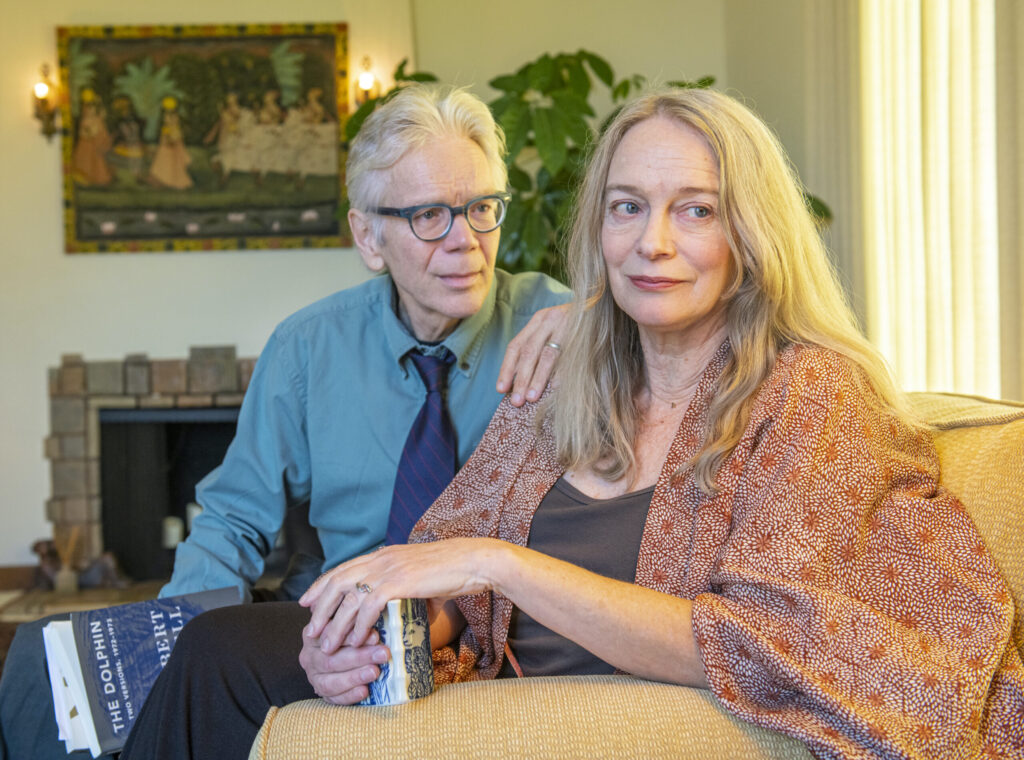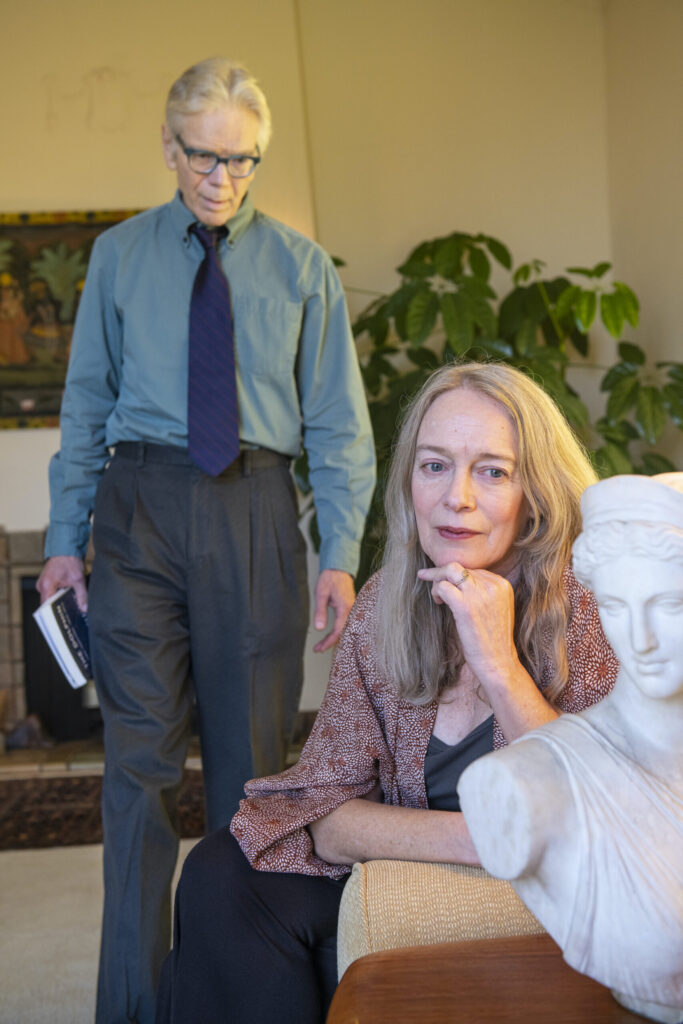As it happens, The Marsh’s first opening night of the year fell on my birthday. Being grateful to have lived this long, I appreciate that both of the company’s locations still require proof-of-vax and masking—a sentiment that wasn’t shared by the cranky old white man who entered ahead of me. This guy, who appeared to be at least in his 60s, was outright offended by COVID safety measures and he let everyone know it.
He did as he was told in order to get in, but, like a fussy toddler, he angrily pulled off his mask as soon as he and his companion sat down audience-right. (The companion kept hers on the whole time and was clearly embarrassed by the tantrum.) Over the course of the 70-plus-minute show, my Aranet4 peaked at 1261ppm, the majority of which no doubt came from this entitled old blowhard.
As someone who’s now spent his entire 40s within the COVID-19 pandemic, I dare say that if and when I reach that guy’s age that I’ll be much more sensitive to simple acts that help myself and others live longer. (One audience member attended with her daughter, who appeared to be under 10, but happily stayed masked the entire show.)
Believe it or not, the above actually does sort of relate to Lynne Kaufman’s Poetic Justice (through January 29 at The Marsh-SF), the show we were all there to see. At least it does in the sense that Kaufman’s two one-act plays both tell stories of seniors concerned about how they’ll be remembered once they pass on. Both plays, in fact, conclude with the line “We never know how we’ll be remembered, or by whom, so keep on.” Given that both plays dramatize the lives of real people, it seems as if Kaufman was trying to find a specific answer rather than just an abstract. Which is curious, considering her subjects are poets, practitioners of a notoriously esoteric art form.

The first piece, You Must Change Your Life, recounts the pre-WWII story of European military cadet and aspiring poet Franz Kappus (Julia McNeal). Seeking both an outlet for his gift and the wisdom of an elder, Kappus writes a letter to renowned Austrian poet Rainier Rilke (Charles Shaw Robinson). To the cadet’s surprise, the poet not only replies, but begins a regular correspondence that will eventually be documented for the ages.
The second piece, Divine Madness, jumps ahead to the 1980s (as noted by the brief mention of Dallas) for a meeting between literary critic Elizabeth Hardwick (McNeal) and ex-husband and poet Robert “Cal” Lowell (Robinson). Though Lowell has long since remarried and started a new family, this get-together serves as something of a long overdue post-mortem for their relationship.
The fact that “Lizzie” is writing a memoir, seemingly in response to Cal writing a thinly-veiled roman à clef about the couple’s marriage, is enough of a catalyst for the former lover to look back on the good, the bad, and the ugly of their time together.
It’s hard for me to recall a time when I went to The Marsh for something that wasn’t a solo show. Though Poetic Justice is, for all intents and purposes, a duet, much of it still feels in fact like a solo show. As directed by Lauren English (a talented performer in her own right and daughter SF Playhouse leaders Bill English and Susi Damilano), both the direction and the text do their best to give both performers ample room to flex, yet both plays seem like one-woman shows just trying to be duets. I don’t say that as a knock, but as an observation.
Although McNeal never quite pulls off the youthful traits of Kappus, she nails the hero worship the lad must have felt for Rilke. It comes off less as a youth seeking the advice of an elder but more like a so-called “non-professional” being given the once-in-a-lifetime opportunity to bend the ear of an industry insider. Anyone who’s ever caught the attention of their hero knows that feeling.

As Lizzie Hardwick, McNeal slips into the role with the greatest of ease to portray the all-too-familiar feelings of anger and passion that bubbles up when you run into a certain ex. When the two begin sharing memories of their old life, McNeal wears every emotion openly and vividly, as if guiding we audience members on this journey through her memory.
In fact, McNeal is so adept at her roles that Robinson often seems as if he’s just trying to catch up. He’s overall outmatched by his co-star’s versatility, and the fact that his characters are the ones to exit and enter the stage makes one wonder if, in fact, the show actually had been conceived as a one-woman piece that expanded.
Of the two short plays, Divine Madness comes off as the stronger piece. You Must Change Your Life isn’t bad, especially as Rilke begins dispensing wisdom about being willing to be open in both art and love, but its fidelity to the titular Letters to a Young Poet makes it often seem like series of back-and-forth monologues, even when Kaufman tries to shape them into proper conversations.
She’s much more successful in doing so with Divine Madness, which is actually just played as dramatized conversations. It ends with Lizzie monologuing on the aftermath of her marriage to a bi-polar artist, but the majority of the piece is a well-written chatfest between two very different people who briefly shared the same life as lovers and spouses.
Poetic Justice works best as a showcase for its lead actress and the spark she brings to Kaufman’s text. Just over an hour long, the characters never overstay their welcome, even when kvetching about how they can’t stand being around one another anymore. It’s a pleasant start to a new year with The Marsh, though I hope future audiences are more mindful of the theatre’s COVID protocols.
POETIC JUSTICE runs through January 29 at The Marsh-SF. Tickets and further info here.







